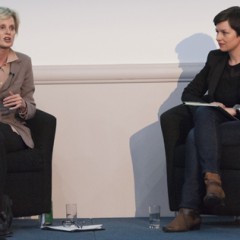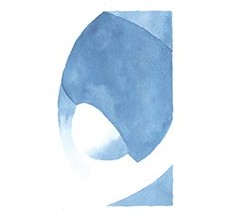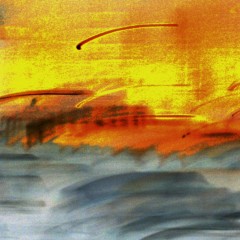Living, Thinking, Looking: Responses
On Friday 23rd October 2015, the Centre for Contemporary Literature hosted the world's first academic conference on the writing of the American author Siri Hustvedt. Living, Thinking, Looking was organized with great dedication and attention to detail by Alex Williamson, and the Centre expresses its thanks to Alex for his efforts. The conference was also followed by an evening event (pictured) at which Siri Hustvedt talked with Dr Johanna Hartmann of the University of Augsburg. This event has now been written up in two reports: one on Birkbeck's own Events Blog and one from the Times Literary Supplement. Image: Dominic Mifsud, Birkbeck Media...
Transitions 6
New Directions in Comics Studies 2015 31st October 2015, Birkbeck, University of London Keynote: Dr. Mel Gibson (Northumbria University) Respondents: Dr. Ian Hague (London College of Communication); Dr. Julia Round (Bournemouth); Professor Roger Sabin (Central Saint Martins) Part of Comica – The London International Comics Festival, this is currently the only regular academic comics event based in London. Transitions is devoted to promoting new research into comics in all their forms, aiming specifically to provide a forum for research by postgraduate students and early career lecturers/researchers. Comics studies encourage cross-disciplinary pollination and a convergence of distinct knowledges: literary and cultural studies, visual arts and media, modern languages, sociology, geography and more. By thinking about comics across different disciplines, we hope to stimulate and provoke debate and to address a wide spectrum of questions, to map new trends and provide a space for dialogue and further collaboration. Attendance is free, but registration essential. Email to Hallvard, John, Nina, and Tony at transitions.symposium@gmail.com. Click on the link below for a full conference programme. Transitions 6 programme Image by John Miers...
Conference Report: Action Writing
by Alex Williamson The simmering heat of a sultry summer’s day provided an atmospherically-symbiotic accompaniment to Birkbeck’s Action Writing conference in early July. Convened by Pippa Eldridge and Catherine Flay, the conference offered a detailed examination of the dialogue between politics and aesthetics in post-war-to-present American fiction. The central provocation for the day: can literature have a political impact? This problematic notion was considered by a wide range of students, academics and interested others. The papers were broadly united in their focus on political poetics and countercultural aesthetics within the temporal-spatial framework of postmodernism. The conference coincidentally revisited and recontextualised some of the thematic considerations addressed at Birkbeck’s earlier conference on the end of the American century, Rupture, Crisis, Transformation. The idealism, innovations and irruptions of radical American literature in the face of a sequence of socio-political crises in the late twentieth century seemed to foreshadow the bruised subjectivities of the new millennium. The opening keynote by Martin Eve (Birkbeck), familiarised the audience with the problematic relationship between politics and postmodern literature. Beginning with an illustrative deployment of the distant reading model advocated by Franco Moretti to signpost literature’s apparent depoliticisation over the past fifty years, Martin’s paper centred upon the difficulties of applying definitive categorisations as a means to unpicking the postmodern knot. On first glance, the implications for recent US fiction, Martin suggested, were wide-ranging, deeply engrained and troubling. Convenient labels such as ‘politics’, ‘radicalism’, ‘American’ and ‘fiction’ had limited rather than liberated the theoretically and narratively complex texts produced during this era. Moreover, the ugly spectre of the ‘great white male narcissists’ (Doctorow, Pynchon, DeLillo, Wallace et al) and their dedication to an apparently apolitical metafictional mode threatened to upend the entire American postmodern literary enterprise. But all was not lost. From the ruins of the postmodern literary movement emerged, phoenix-like, a succession of authors whose thematic preoccupations, imaginative explorations and modes of expression seemed to recapture the critical essence of the radical political text: Toni Morrison, Ishmael Reed, Percival Everett. Moreover, the metafictional excursions of postmodern American fiction indicate an inclination towards the enduring possibilities of critique. Martin’s identification of the extant issues which implicate the very definition, identification and, indeed, production of ‘political’ literature enabled him to determine the ethical heartbeat which guides the body of American literature: liberal humanism, freedom of speech, and the enduring necessity of critique, underpinned by the literary possibilities of metafictional egress. (You can read the expanded text of Martin’s keynote on his website. Highly recommended.) To take one example, this ethical heart could be perceived – albeit dimly for certain members of the audience – in the writing of Dave Eggers, whose...




Recent Comments